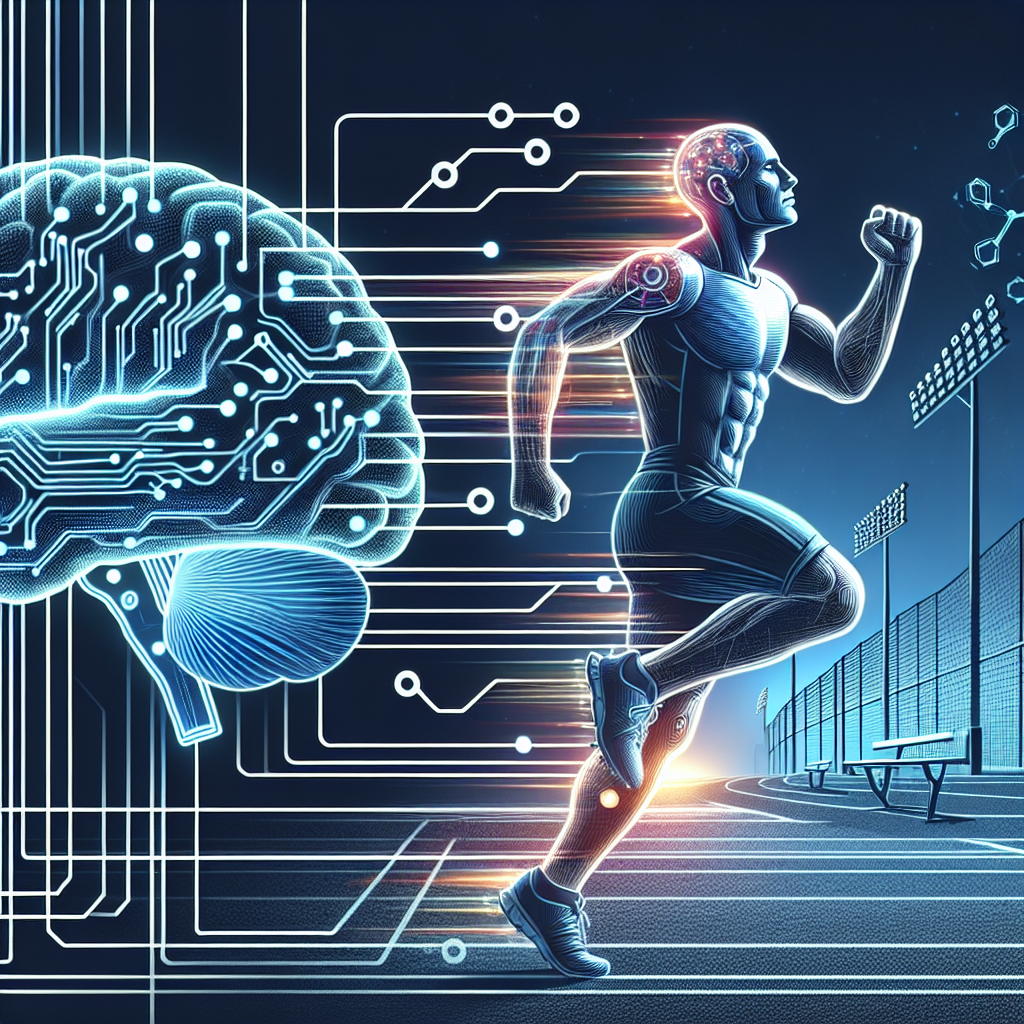Introduction
Artificial intelligence (AI) is revolutionizing the world of sports performance psychology by providing athletes, coaches, and trainers with new tools and insights to improve performance. From wearable technology that tracks biometric data to predictive analytics that help optimize training programs, AI is changing the game in sports psychology. In this article, we will explore the impact of AI on sports performance psychology and how it is reshaping the way athletes prepare and compete.
Impact of AI on Sports Performance Psychology
1. Data Analysis
One of the key ways AI is impacting sports performance psychology is through data analysis. AI algorithms can process large amounts of data from sensors, wearables, and video footage to provide insights into an athlete’s performance. This data can include biometric information such as heart rate, oxygen levels, and muscle activity, as well as movement patterns, technique, and game tactics.
By analyzing this data, sports psychologists can identify patterns, trends, and areas for improvement in an athlete’s performance. For example, AI can pinpoint weaknesses in an athlete’s technique, track their progress over time, and suggest personalized training programs to help them reach their full potential. This data-driven approach to sports psychology is revolutionizing the way athletes train and compete, leading to better performance outcomes.
2. Predictive Analytics
Another way AI is impacting sports performance psychology is through predictive analytics. By analyzing historical data and trends, AI algorithms can predict future performance outcomes and help coaches and trainers optimize training programs. For example, AI can forecast an athlete’s likelihood of injury based on their training load, recovery time, and biomechanics, allowing coaches to adjust their training plan accordingly.
Predictive analytics can also help coaches and trainers identify potential talent in young athletes, assess the impact of different training methods, and optimize game strategies based on opponent tendencies. By leveraging AI technology, sports psychologists can make more informed decisions that lead to better performance outcomes for athletes.
3. Mental Skills Training
In addition to physical performance, AI is also impacting mental skills training in sports psychology. By analyzing biometric data and psychological assessments, AI algorithms can provide insights into an athlete’s mental state, focus, and emotional well-being. This information can help sports psychologists tailor mental skills training programs to address specific needs and challenges faced by athletes.
For example, AI can identify patterns of stress, anxiety, or lack of confidence in an athlete’s performance and suggest techniques to improve mental toughness, concentration, and resilience. By integrating AI technology into mental skills training, sports psychologists can help athletes develop the psychological tools they need to perform at their best under pressure.
FAQs
Q: How is AI being used in sports performance psychology?
A: AI is being used in sports performance psychology to analyze data, predict outcomes, and improve mental skills training for athletes. By leveraging AI algorithms, sports psychologists can gain insights into an athlete’s performance, identify areas for improvement, and optimize training programs to enhance performance outcomes.
Q: What are the benefits of using AI in sports performance psychology?
A: The benefits of using AI in sports performance psychology include improved data analysis, predictive analytics, and mental skills training for athletes. By leveraging AI technology, sports psychologists can make more informed decisions, optimize training programs, and help athletes reach their full potential.
Q: How can athletes benefit from AI in sports performance psychology?
A: Athletes can benefit from AI in sports performance psychology by gaining insights into their performance, optimizing training programs, and developing mental skills to enhance their performance outcomes. By leveraging AI technology, athletes can improve their technique, prevent injury, and perform at their best under pressure.
Conclusion
AI is revolutionizing sports performance psychology by providing athletes, coaches, and trainers with new tools and insights to improve performance. From data analysis and predictive analytics to mental skills training, AI is reshaping the way athletes prepare and compete. By leveraging AI technology, sports psychologists can gain insights into an athlete’s performance, optimize training programs, and help athletes reach their full potential. As AI continues to evolve, its impact on sports performance psychology will only grow, leading to better outcomes for athletes and teams.

